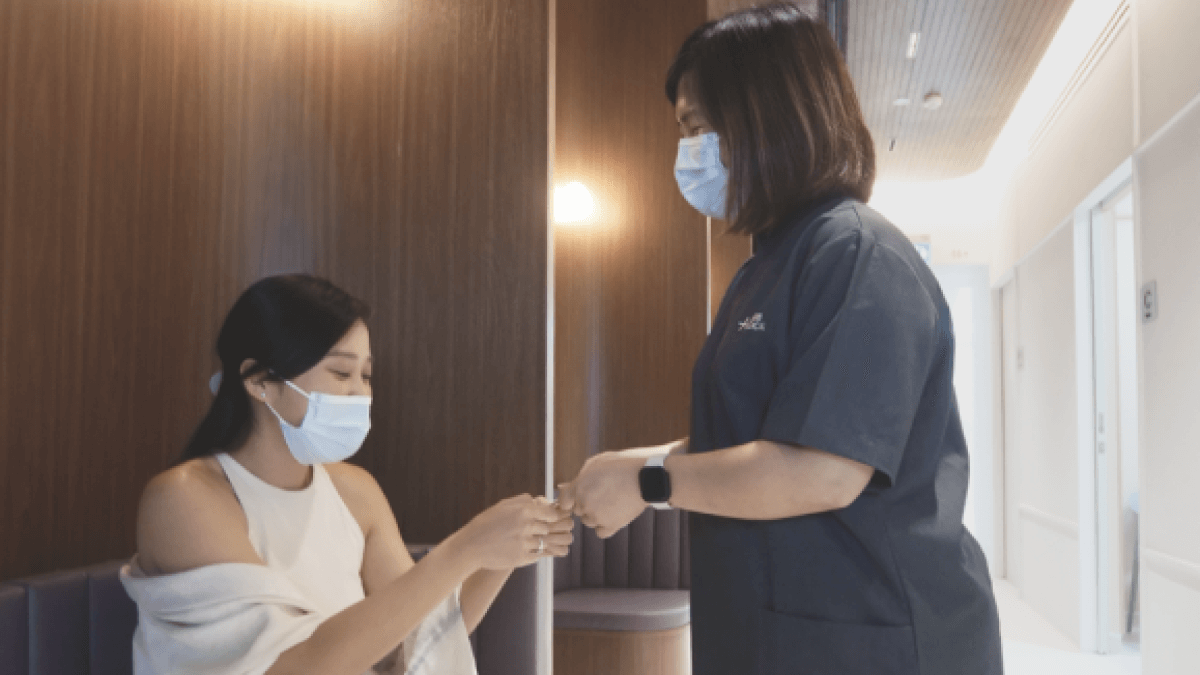What Is a Diabetes Test?
A Diabetes Test checks your blood sugar (glucose) levels to determine whether you have prediabetes, diabetes, or if your condition is under control. It’s a fast, effective way to catch one of Singapore’s most common chronic diseases before it leads to complications.
At Regis Medical, we offer accurate, doctor-guided diabetes testing with lifestyle and treatment advice included.
Source: HealthHub
Types of Diabetes Tests We Offer
Fasting Blood Glucose
Measures blood sugar after fasting (8–10 hours). Used to detect prediabetes or diabetes. Quick and cost-effective.
HbA1c (Glycated Hemoglobin)
Reflects average blood sugar over the past 2–3 months. Does not require fasting. Ideal for long-term monitoring and diagnosis.
Random Blood Glucose
Taken at any time of the day. Useful for symptomatic patients or rapid screening.
Oral Glucose Tolerance Test (OGTT)
Involves drinking a glucose solution and checking sugar levels over time. Commonly used for gestational diabetes (during pregnancy).
Why You Should Test for Diabetes
Diabetes often develops silently, with symptoms appearing only after significant damage has occurred. Early testing can prevent:
Heart disease
Kidney failure
Vision loss
Nerve damage
Stroke
Erectile dysfunction or fertility issues
Symptoms That May Indicate Diabetes
You should get tested if you have symptoms such as:
Frequent urination (especially at night)
Excessive thirst
Unexplained weight loss
Fatigue or blurred vision
Slow-healing wounds or frequent infections
Tingling or numbness in hands/feet
Itchy skin or yeast infections
Who Should Get a Diabetes Test?
You should be screened if you:
Are aged 30 and above
Are overweight or have high abdominal fat
Have a family history of diabetes
Have high blood pressure or high cholesterol
Lead a sedentary lifestyle
Had gestational diabetes (during pregnancy)
Have polycystic ovarian syndrome (PCOS)
Are a smoker or drink alcohol regularly
Even without symptoms, regular testing is recommended every 1–3 years depending on your risk level.
Test Process and Turnaround
Sample type: Blood test (usually venous draw)
Fasting: Required for fasting glucose and OGTT
Duration: 10–120 minutes (depending on test type)
Results: Available within 1–2 working days
Consultation: Includes doctor explanation, risk assessment, and care planning
Diabetes Tests
Fasting Blood Glucose
HbA1c (Glycated Hemoglobin)
*Turnaround time 2-3 working days
Whatsapp Us Make an Appointment
*Prices listed were last updated on 1 July 2023. Prices may be subject to change.
*Price does not include consultation fee and GST.
Related Tests & Add-Ons
Lipid Panel
Liver Panel
Kidney Panel
Urine FEME
Urine PCR (Urine Protein/Creatinine Ratio)
*Turnaround time 3 working days
Full Screening Packages
Stay on top of your health with our comprehensive health screening packages
Essential Package
Essential Plus Package
*Turnaround time 3-7 working days
After Your Diabetes Tests
Once your diabetes test is completed, here is what you can expect:
How You’ll Receive Results
- Turnaround time: Results are usually ready within 2–3 working days, depending on the type of test performed.
- Secure delivery: Your results will be sent via WhatsApp or email once available. If a review is necessary, our clinic will contact you to schedule a consultation.
What the Results Mean
- Normal results: If your glucose and HbA1c levels are within the normal range, no further treatment may be required. Our doctor may still suggest routine monitoring, especially if you have risk factors such as family history, high BMI, or high blood pressure.
- Borderline / Prediabetes results: If your results indicate prediabetes, we will arrange a review session. Our doctor will explain your results and provide tailored advice on diet, exercise, and lifestyle changes to lower your risk of developing diabetes.
- Abnormal / Diabetes results: If your test confirms diabetes, our doctor will explain your results in detail and discuss a treatment and monitoring plan, which may include medication and follow-up tests.
Next Steps & Ongoing Care
- Lifestyle guidance: Even with borderline results, adjustments to diet, exercise, sleep, and stress management can make a big difference.
- Treatment and monitoring: If diabetes is diagnosed, our doctor will provide a treatment plan, which may include diabetes medication, regular monitoring, and periodic HbA1c checks.
- Specialist referral: If advanced care is needed, such as insulin management, or if complications affecting the eyes, kidneys, or nerves are suspected, our doctor will refer you to a trusted endocrinologist or relevant specialist.
- Preventive screenings: Ongoing care may also include blood pressure checks, cholesterol screening, and kidney or eye assessments to protect your long-term health.
Why Choose Regis Medical

Book Your Diabetes Test Today
Diabetes can be managed and even prevented with early detection. Don’t wait for symptoms. Get tested today.

Finding Us
Holland Village
255 Holland Ave, Singapore 278983
Near MRT Exit B
Mon, Tues, Thurs, Fri:
8.30am - 2.30pm
5.30pm - 10.00pm
Wed:
8.30am - 2.30pm
Sat:
9.00am - 3.00pm
Closed on Sundays and Public Holidays. For the latest updates on our clinic’s opening hours, please check our Google Maps.
** GP registration ends 15 mins before the closing time above, while Physiotherapy & Acupuncture end registration 45 mins before. Please book an appointment in advance to avoid queues and disappointment.
Katong
437 Joo Chiat Road, Singapore 427650
Near Marine Parade MRT
Mon, Tues, Thurs, Fri:
8.30am - 2.30pm
5.30pm - 10.00pm
Wed:
8.30am - 2.30pm
Sat:
9.00am - 3.00pm
Closed on Sundays and Public Holidays. For the latest updates on our clinic’s opening hours, please check our Google Maps.
** GP registration ends 15 mins before the closing time above, while Physiotherapy & Acupuncture end registration 45 mins before. Please book an appointment in advance to avoid queues and disappointment.
FAQ
Accessibility & Support
Regis Medical Holland Village is located at 255 Holland Avenue, Singapore 278983
Regis Medical Katong is located at 437 Joo Chiat Road, Singapore 427650
Click here to view our opening hoursAppointment
To book an appointment at Regis Medical Holland Village, please call or whatsapp us 8118 5298
To book an appointment at Regis Medical Katong, please call or whatsapp us 9851 3728
You can only cancel or change your appointments up to 24 hours before your appointment. You will receive your refund within 3 working days. No refund will be issued for no shows and cancellations within 24 hours before your appointment. However, if you are feeling unwell on the day of the appointment, we allow patients who have their acute illness seen at Regis Medical to reschedule their appointment without extra cost.
This policy is subject to change.
Yes. You can reschedule your appointments. However, you need to reschedule your appointment at least 24 hours before your actual appointment time. If you are unwell on the day of the appointment, we will reschedule your appointment at no extra cost if you seek medical attention at our clinic (for non-emergencies only).
Finance
General
Fasting is required for Fasting Blood Glucose level test. It is not required for HbA1c Test
Yes, generally you can take usual medications with water. But always confirm with our doctor, especially if you’re on drugs that affect blood sugar.
If normal but at risk, usually every 1–3 years.
If pre-diabetic, more frequent monitoring (often yearly).
If diabetic, frequency depends on your treatment plan.
